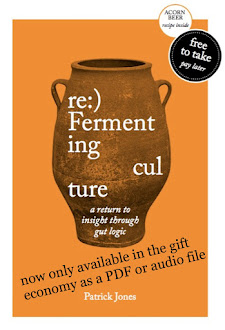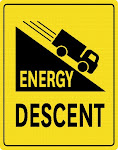As many of you know we're currently attempting to establish a quarter acre garden as a dynamic food forest. However, it's not only plant biology books, seed grower's guides and the land itself that's informing us.
Here's a list of books that I've recently read or I'm currently reading which are assisting me in the garden:
John Zerzan's
Running on Emptiness: The Pathology of Civilization (2002)
Masanobu Fukuoka's
The One-Straw Revolution (1978),
The Road Back to Nature (1987)
Val Plumwood's
Environmental Culture: The Ecological Crisis of Reason (2002)
Judith Wright's
Born of the Conquerors (1991)
David Holmgren's
Future Scenarios (2009)
Alexis Wright's
Carpentaria (2006)
And, here are some associated notes from my reading:
In Europe if you wish to imagine life before agricultural settlements, you'd have to conjure up an imagination that went back 10,000 years. A difficult task by any one's standards. However in Australia our imagination need not be so stretched or even fanciful.
On the scale of things, their history was just a half-flick of the switch of truth – simply a memory no greater than two life spans. (A Wright, p57)
If we lack the imagination to understand our domesticated bonds – time, symbol, language, capital, property, technology, and so forth – we forfeit the possibilities of a natural, non-hierarchical and unmediated self.
Culture has led us to betray our own aboriginal spirit and wholeness, into an ever worsening realm of synthetic, isolating, impoverished estrangement. (Zerzan, p16)
Permaculture, based upon relocalising resources, may well be an achievable bridge back for ecologically disembodied society to greater aboriginality and timelessness. Philosophically, permaculture can be seen as a loose modus that conscientiously steps away from progress and technology, rather than a rigid system that attempts to dominate and cage people. In my version of permaculture, agricultural toil and endless hard work are replaced by tending one's own or community's food garden for a few hours a day. And where ever-expanding wilderness is no longer available in which to forage and free-range, permaculture asks us to disregard set ideas of public and private land, and concentrate on that which is possible with all manners of so-called 'disused' land (Holmgren, 2009).
In our own community the
Hepburn Relocalisation Network, established by David Holmgren, Su Dennett and Maureen Corbett, is working to encourage and assist community and local council to plant nut trees along roadways and in parklands. These trees will accompany already established feral and publicly planted fruit trees that supply free food to humans and non-humans alike.
When you get down to it, there are few agricultural processes that are necessary. (Fukuoka, 1978, p15)
Our reliance upon grains, domesticated meat and dairy renders us passive consumer-abusers and grave polluters. Wild and semi-cultivated foods are our future if we are to liberate ourselves from the pathologies of civilisation. Therefore, we feel we have to make a stance against factory supply (supermarkets), transition to free-ranging foods (organic farms and small gardens) before reacquainting ourselves with the possibilities of the wild. Almond meal is going to become a more significant supplement for us in years to come.
 Above: A young almond tree grows shrouded by Indigenous poa tussock grasses in our garden. The poas protect the delicate leaves of the almond from late frosts until it is established enough to survive them.
Above: A young almond tree grows shrouded by Indigenous poa tussock grasses in our garden. The poas protect the delicate leaves of the almond from late frosts until it is established enough to survive them.












